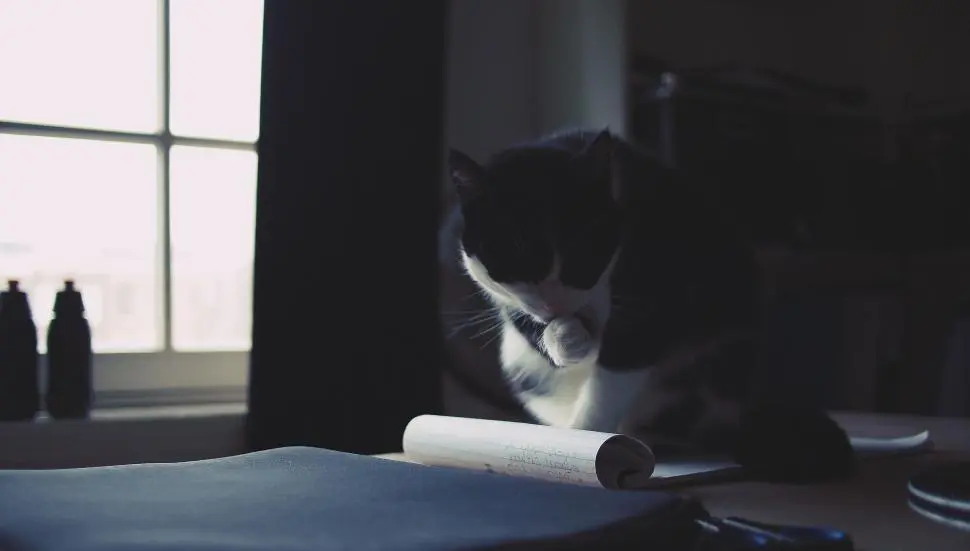Why does My Neighbor’s Cat So Obsessed with Me?
Cats have consistently been fascinating creatures due to their unpredictable and anonymous nature. You are not alone if you have observed your neighbor’s cat becoming excessively comfortable towards you. It may be confusing and even entertaining to observe a cat that does not belong to you rubbing with your legs or following you. However, what is the reason for this? What is the reason for your neighbor’s cat obsessed with you?
We will talk about the reasons for this behaviour, what it means, and how to deal with a cat that seems to have become attached to you in this article. We have something for everyone, no matter how much or how little they know about cats.
1. The Curious Case of Your Neighbor’s Cat
Cats are famous for their selective attachment and independence. As a consequence, when a cat forms a strong connection to someone other than its owner, it may lead to a variety of problems. What is the cause for your neighbor’s cat to always be in your doorway, rubbing up against your legs, or following you about the neighbourhood? Is it feasible that this is an expression of affection? Is there anything else in play?
It is imperative to acknowledge that cats have complex emotional lives. A variety of variables determine their relationship with people. In This article we will examine the underlying causes of these behaviours and provide suggestions for managing your relationship with your neighbor’s cat.
2. Understanding Feline Attachment
Before we dive into why your neighbor’s cat has an attraction with you, it’s important to understand how cats form emotional bonds. Cats are solitary hunters, in contrast to dogs, who are playful animals that seek to create friendships quickly. But they have the capacity to establish profound emotional connections, particularly with people who provide them with consistent safety, care, and attention.
Felines are very observant creatures. They notice patterns in behavior, and they often associate certain people with positive experiences, such as food, petting, or even just a calm, comfortable environment. The bond can be more emotional than physical, and many cats can become particularly attached to people they trust, even if they aren’t their owners.
3. Why Does My Neighbor’s Cat Like Me?
There are various reasons why your neighbor’s cat can be drawn to you. We will discuss the most common factors:
Your Scent
Cats really have a fantastic sense of smell! They might be drawn to your scent because it’s one-of-a-kind and can bring a feeling of familiarity and comfort, even if you’re not the cat’s owner. If you’ve hung out with other animals or been close to where they live, that could be why the cat seems so curious about you.
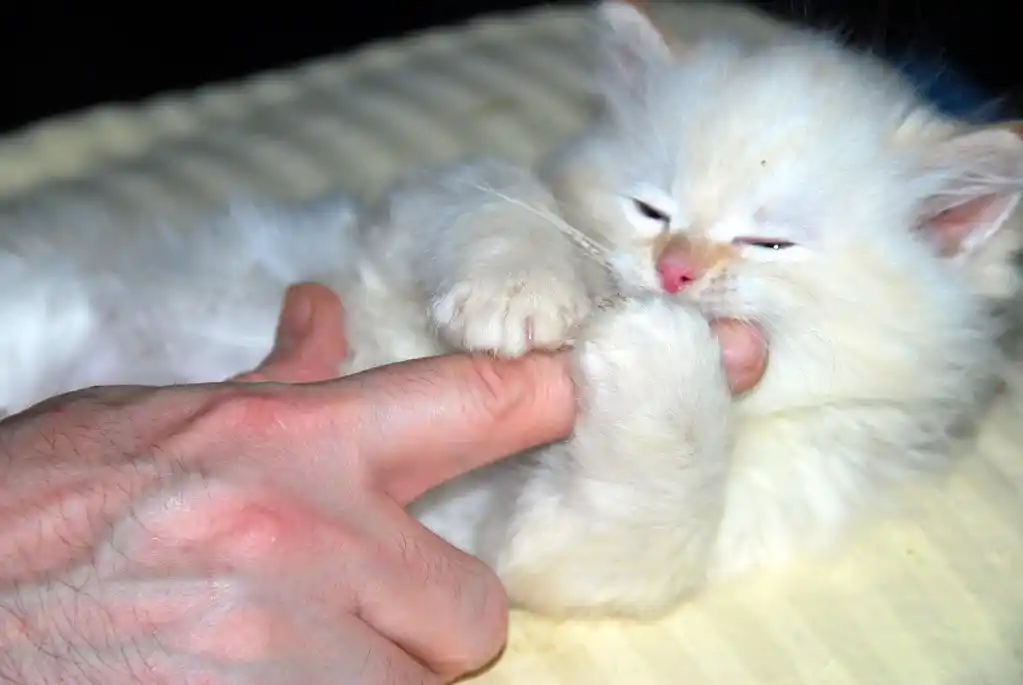
Read about why your cat bites your nose.
Your Demeanor and Actions
Cats are great at detecting human body language. A cat will typically draw towards someone who is calm, kind, and non-threatening. Certain motions, such as bending down to their level, could cause inquiry, while revealing sympathy by extending your hand for a smell may ignite their interest.
Food and Treats
It might be as simple as you’ve given the cat some treats, or it sees you as a reliable source of food. Cats can easily bond with anyone who offers them tasty morsels!
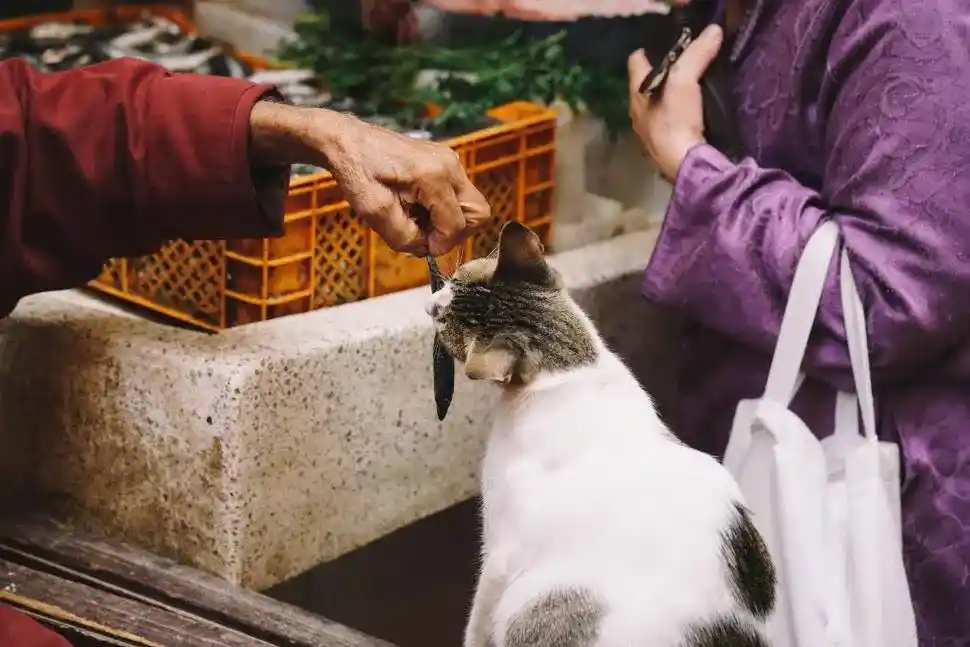
4. Emotional Bonds Between Cats and Strangers
You may be shocked to know that cats can build emotional relationships with people other than their owners. While it is true that many cats build bonds to their main carers, some cats widen their circle to include other persons, particularly those they feel secure with.
Cats show affection in plenty of ways, including as purring, rubbing against your legs, and kneading with their paws. These acts show trust and happiness. When a neighbor’s cat rubs on your legs, it is not just being kind; it is also accepting you as a member of the family and a trustworthy character. So, although it may seem weird, the cat’s attentiveness is an example of emotional attachment.
5. Neighbor’s Cat Behavior Explained
To assist you comprehend what’s going on, here are some sign that your neighbor’s cat wants your attention:
Purring and Kneading
Purring is often connected with satisfaction, but it may also be a means for cats to express love. Kneading is another sign of comfort. If your neighbor’s cat is performing these behaviours around you, it’s a good sign that it’s looking for more than just your attention—it wants to feel protected and loved.
Following You Around
A cat that follows you may be showing a level of attachment, especially if it consistently appears when you’re around. This behavior could also mean that the cat is curious and sees you as someone worth checking out regularly.
Staring or Direct Eye Contact
Even if it hurts, cats will look you straight in the eyes to say, “I trust you.” If a cat looks at you straight on, it usually means they feel comfortable around you
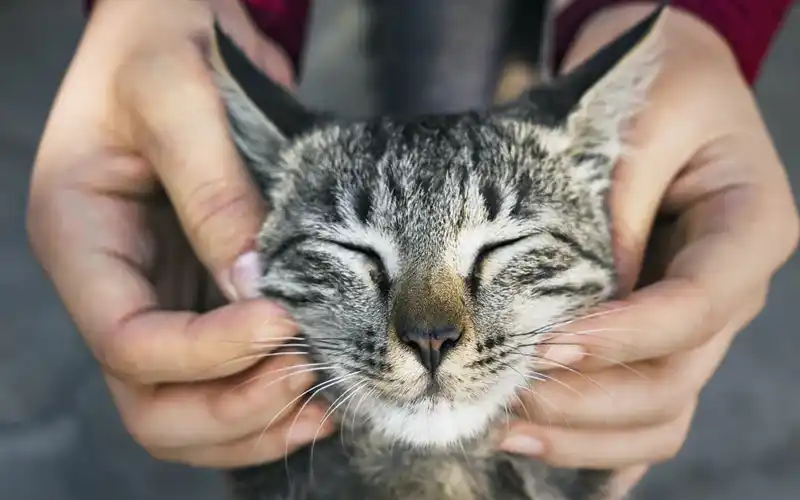
Case Study: The way My Cousin Handled Her Neighbor’s Cat Becoming Obsessed With Her
My cousin Sarah just moved into a new flat, and she observed her neighbor’s cat, Whiskers, appeared a touch too friendly. Sarah first thought it was adorable. Whiskers followed her around the garden, rubbing against her legs and purring. However, the behaviour quickly increased. Whiskers began following Sarah down the street whenever she went on a stroll or took out the garbage.
Sarah wasn’t sure why the cat was so attached. She hadn’t done anything special other than giving Whiskers a treat once in a while. But soon, she realized that outdoor cats, like Whiskers, sometimes bond with people for simple reasons like food or companionship.

Learn about why your cat pees on clothes.
Understanding the Behavior
Sarah learned that it’s common for outdoor cats to form attachments to people, especially if they sense warmth or kindness. It wasn’t anything personal; Whiskers just liked her presence.
Setting Boundaries
Sarah decided she needed to set some boundaries. She started by ignoring Whiskers when she followed her. Instead of rewarding the behavior with attention or treats, Sarah walked away without acknowledging the cat. Slowly, Whiskers started to stop following her as much.
Talking to the Neighbor
After a few weeks, Sarah talked to her neighbor. She explained the situation and requested the neighbor to keep Whiskers indoors more often. The neighbor was understanding and agreed to help manage Whiskers’ behavior.
Finding a Balance
Now, Whiskers doesn’t follow Sarah as much, and when she does, it’s less intrusive. Sarah enjoys occasional petting sessions with Whiskers but keeps the interactions short and sweet.
The Takeaway
From this experience, Sarah learned a few key things:
- Cats can form attachments to people, especially outdoors.
- It’s important to set boundaries gently.
- Talking to the cat’s owner can help manage the situation.
- It’s okay to enjoy the cat’s company, but maintain balance.
By following these steps, Sarah was able to handle the situation without upsetting Whiskers. She found a peaceful way to coexist with the cat while respecting her own space.
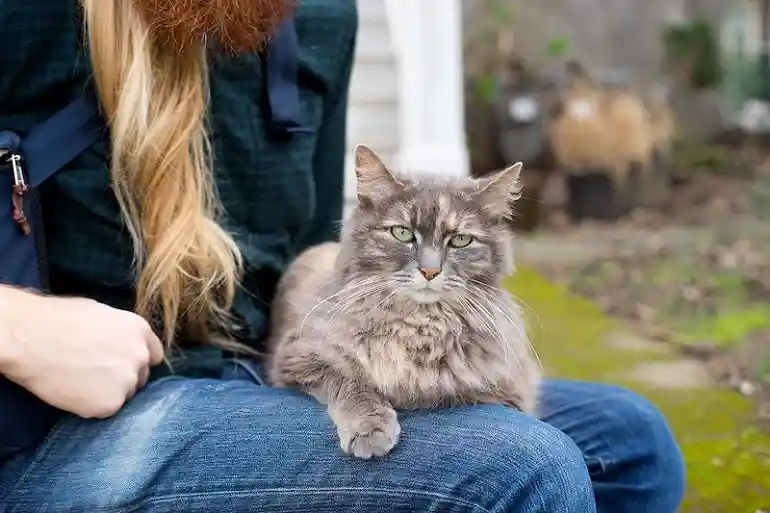
6. Cats Showing Affection to Non-Owners
It may seem unexpected that a cat might show affection to someone other than its owner, yet this is not unusual. Cats are selective, and their conduct is impacted by their mood, environment, and contact with people. They often choose a special person, even if they already have a main career. Felines show how much they love by rubbing up against you, purring, and sometimes following you around. These activities are all examples of bonding that express trust and love, similar to what a cat could do with its owner.
7. Should You Be Concerned About the Cat’s Obsession?
If you find the neighbor’s cat’s behaviour excessive, you should consider if the cat’s attention is becoming excessive. Cats often express interest in certain persons, but continual following or vocalization may indicate they’re wanting more engagement than is healthy.
When Behavior Becomes Excessive
If the cat repeatedly shows symptoms of discomfort when you are not around, or if it gets hostile when you attempt to create limits, this may indicate compulsive behaviour. In such instances, it is important to set limits with the cat and inform its owner.
Setting Boundaries
You may gently redirect the cat’s behaviour by not rewarding it with excessive attention. If the cat wants your love but you’re not in the mood to connect, gently distract it with a toy or another activity to help manage its expectations.
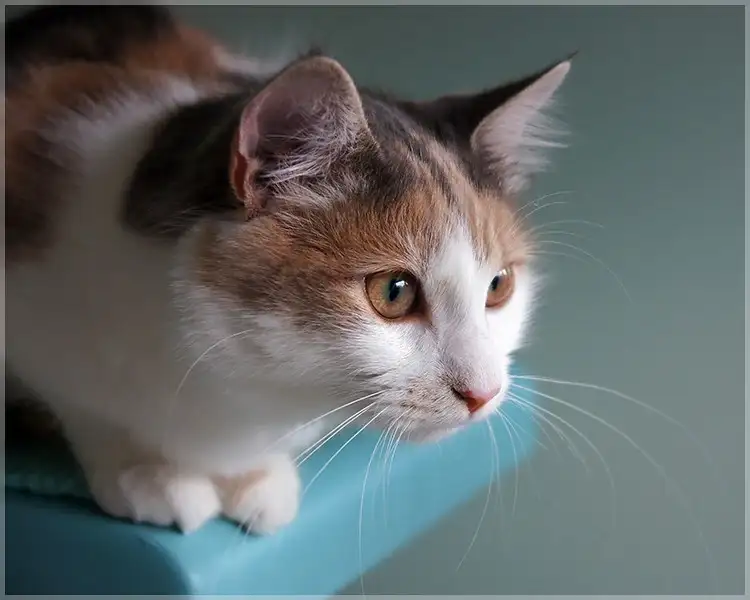
8. Conclusion: Embracing or Managing the Feline Friendship
Understanding your neighbor’s cat’s behaviour might help you value the friendship you’ve made. It’s nice when a cat picks you as their special person,’ but it’s critical to know when to set limits. By respecting both your and the cat’s requirements, you may enjoy company without feeling overwhelmed.
If the cat’s concentration is manageable and delightful, welcome the connection. But if you find your concern too intense, don’t be afraid to gently create limits.
Learn how to stop play aggression in your cat with these simple tips!
9. FAQs: Common Concerns About Neighbor’s Cats
Should I feed my neighbor’s cat?
It is advisable not to feed a neighbor’s cat without permission, since this might create confusion and interrupt its typical feeding schedule.
How do I keep the cat from following me everywhere?
If the cat is being too persistent, try shifting its attention to something else, such as a toy or a new pastime. Setting soft limits is essential.
Can I adopt the neighbor’s cat if it seems attached?
If you’re seriously considering adopting the cat, talk to its owner first. Always discuss adoption with the original caregivers.
Have you ever had a neighbor’s cat become obsessed with you? Share your story in the comments below! For more tips on kitten care, check out our other articles.

